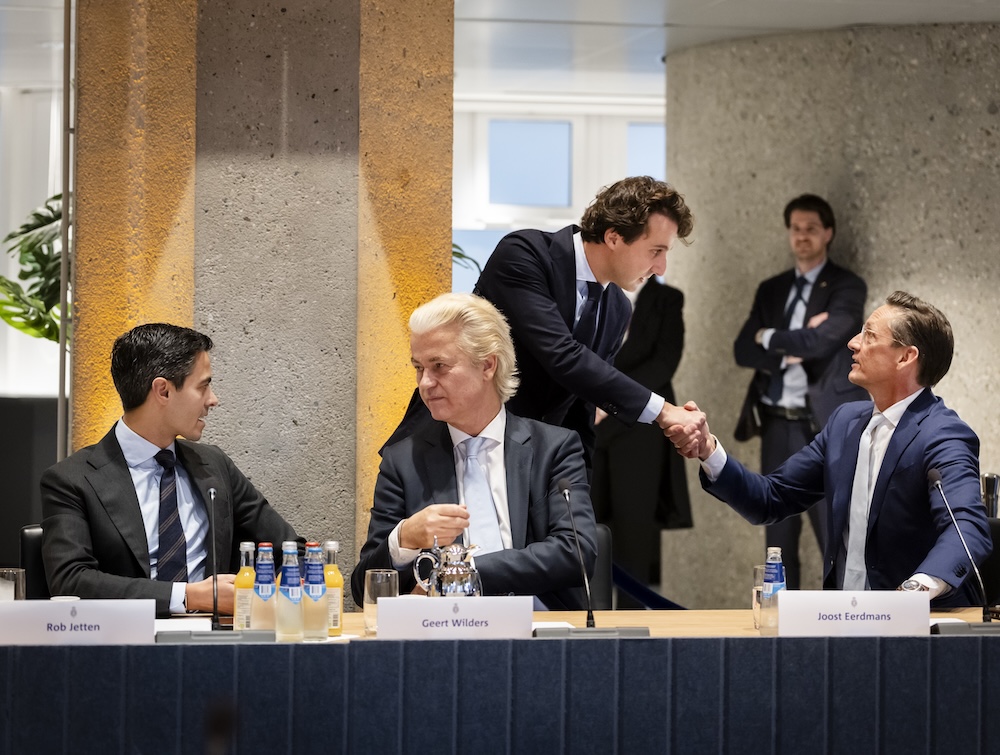Work starts on forming a new Dutch coalition government

Work has now started on forming a new coalition government in the Netherlands with, as expected, railways boss Wouter Koolmees appointed as verkenner (scout) to explore potential combinations.
Koolmees, a former social affairs minister for D66 and the current chief executive of the national train service NS, was backed by all 15 parties in parliament. Parliamentary chairman Martin Bosma praised him as “an experienced figure we’re borrowing for a moment”, who is at arm’s length from day-to-day politics.
Koolmees is expected to begin talks immediately and deliver his report on likely coalitions by November 11. The new parliament will be installed the following day, with a debate on the election outcome set for November 13.
Despite agreement on the need for a swift process, the main parties remain far apart on policy direction. D66 leader Rob Jetten has called for a stable coalition of D66, CDA, VVD and GroenLinks-PvdA — a combination that would command 86 seats. He earlier urged VVD leader Dilan Yeşilgöz to “let the election results sink in” and work constructively to create a centre coalition.
Yeşilgöz, however, again ruled out cooperating with GroenLinks-PvdA on Tuesday, saying the parties’ ideas are “too far apart” and the appointment of Jesse Klaver as new leader does not change anything.
She favours a centre-right coalition of VVD, D66, CDA and JA21 and told reporters on Tuesday that broader alliances are “something in the middle, something dull”.
Joost Eerdmans, leader of the far right JA21 which won nine seats in last week’s election said he is open to a right-wing coalition, but said that with exactly 75 seats it would need another party to ensure stability. He defended his party’s readiness for government, saying it has “experienced candidates” and “five years of parliamentary history”.
CDA leader Henri Bontenbal, whose party is likely to play a key role as a centrist partner, declined to name any preference. He said the talks should focus on “what can be achieved” and did not rule out a minority government.
Meanwhile, PVV leader Geert Wilders congratulated Jetten on D66’s narrow victory. The official count from the national election board will be published on Friday, but with D66 leading by around 28,000 votes, Wilders said he no longer expects the result to change.
Wilders and the PVV, which won 26 seats last week, the same number as D66 will not be part of government because most parties have ruled them out.
Complex job
Koolmees told reporters after Tuesday afternoon’s meeting that he recognises the complexity of his task.
The allocation of seats in the 150-seat lower house of parliament has changed significantly, he said, and “strong preferences” about coalition partners have been expressed during the campaign.
It is, he said, important to have careful conversations with all party leaders to get a picture of exactly what is at stake.
Thank you for donating to DutchNews.nl.
We could not provide the Dutch News service, and keep it free of charge, without the generous support of our readers. Your donations allow us to report on issues you tell us matter, and provide you with a summary of the most important Dutch news each day.
Make a donation